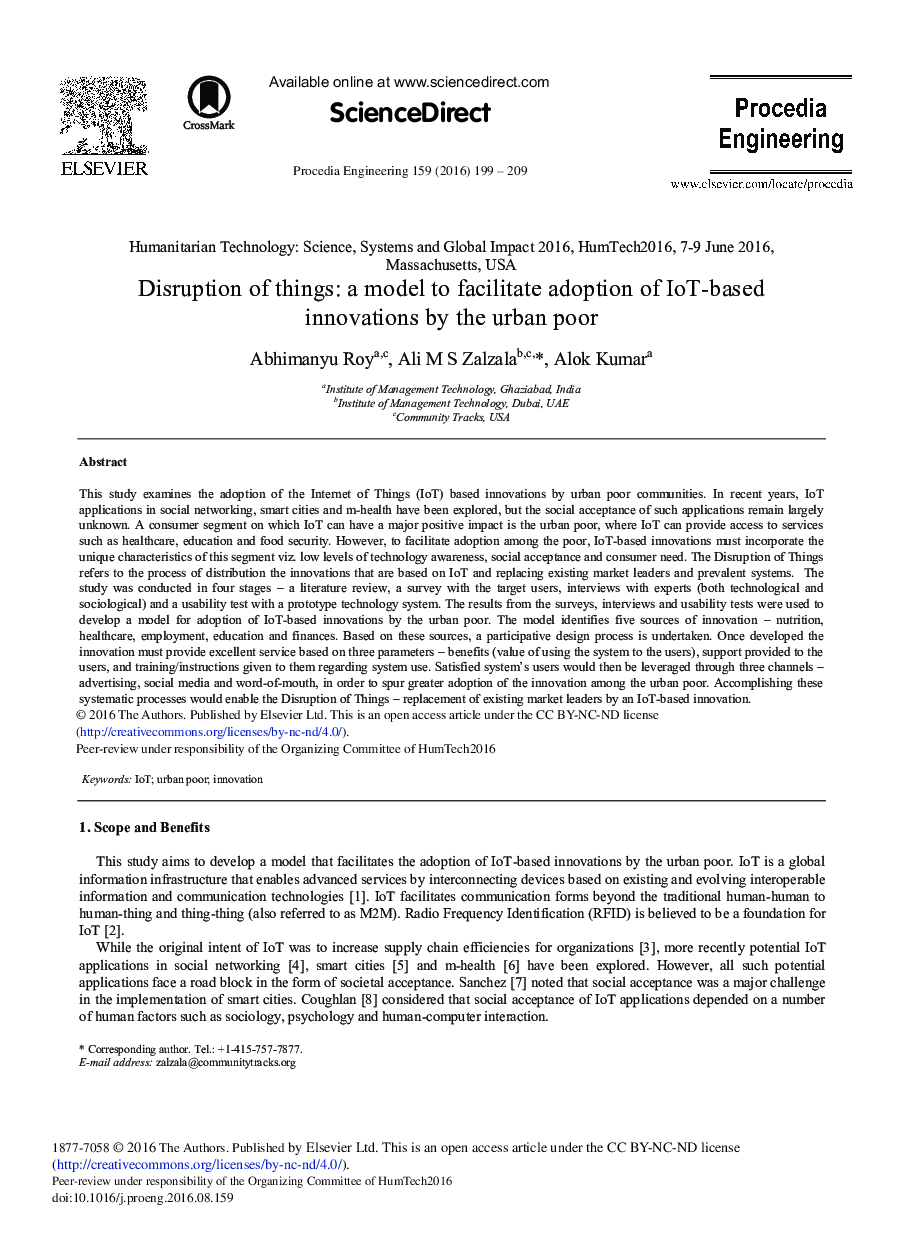| Article ID | Journal | Published Year | Pages | File Type |
|---|---|---|---|---|
| 5030097 | Procedia Engineering | 2016 | 11 Pages |
This study examines the adoption of the Internet of Things (IoT) based innovations by urban poor communities. In recent years, IoT applications in social networking, smart cities and m-health have been explored, but the social acceptance of such applications remain largely unknown. A consumer segment on which IoT can have a major positive impact is the urban poor, where IoT can provide access to services such as healthcare, education and food security. However, to facilitate adoption among the poor, IoT-based innovations must incorporate the unique characteristics of this segment viz. low levels of technology awareness, social acceptance and consumer need. The Disruption of Things refers to the process of distribution the innovations that are based on IoT and replacing existing market leaders and prevalent systems. The study was conducted in four stages - a literature review, a survey with the target users, interviews with experts (both technological and sociological) and a usability test with a prototype technology system. The results from the surveys, interviews and usability tests were used to develop a model for adoption of IoT-based innovations by the urban poor. The model identifies five sources of innovation - nutrition, healthcare, employment, education and finances. Based on these sources, a participative design process is undertaken. Once developed the innovation must provide excellent service based on three parameters - benefits (value of using the system to the users), support provided to the users, and training/instructions given to them regarding system use. Satisfied system's users would then be leveraged through three channels - advertising, social media and word-of-mouth, in order to spur greater adoption of the innovation among the urban poor. Accomplishing these systematic processes would enable the Disruption of Things - replacement of existing market leaders by an IoT-based innovation.
